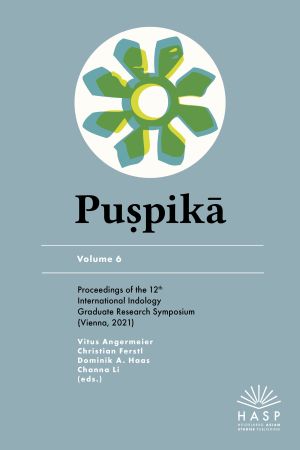Comment citer
Licence (Chapitre)

Ce travail est disponible sous licence Creative Commons Attribution - Partage dans les Mêmes Conditions 4.0 International.
Identifiants (Livre)
Publié
Téléchargements
Complete without Impediment
maṅgala in the Eyes of the Vaiśeṣikas from the 9th to the 15th Century CE
This article revisits the discussion on invocation (maṅgala) as found in the major Vaiśeṣika commentaries dating from the 9th to the 15th centuries. There are two different opinions regarding the purpose of performing a maṅgala before one starts to compose a scholarly work. One group of commentators argues that writing a maṅgala to pay homage to a certain deity or one’s teacher will ensure the completion of that work, while the other group believes that performing a maṅgala will only remove obstacles from the path to completion. Varadachari (1962) has termed these two groups the “ancient school” and the “modern school” respectively. However, his observation does not include the opinion of Bhaṭṭa Vādīndra (13th century CE), another commentator on the Vaiśeṣikasūtra. Through a detailed examination of selected Vaiśeṣika commentaries, this article argues that the so-called dichotomy between the two groups reflects only a partial glimpse of opinions on the function/role of maṅgalas in the Vaiśeṣika commentarial tradition, thereby supplementing and rethinking the arguments proposed by Varadachari based on selected Vaiśeṣika literature.
Keywords Vaiśeṣika, maṅgala, invocation, function









